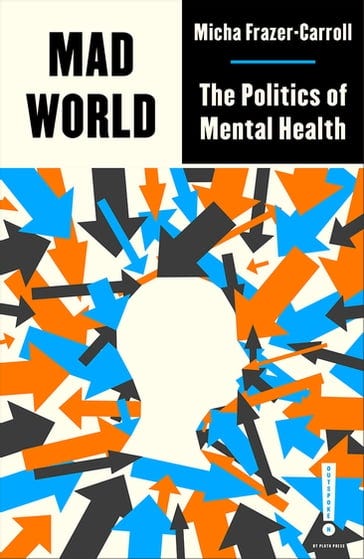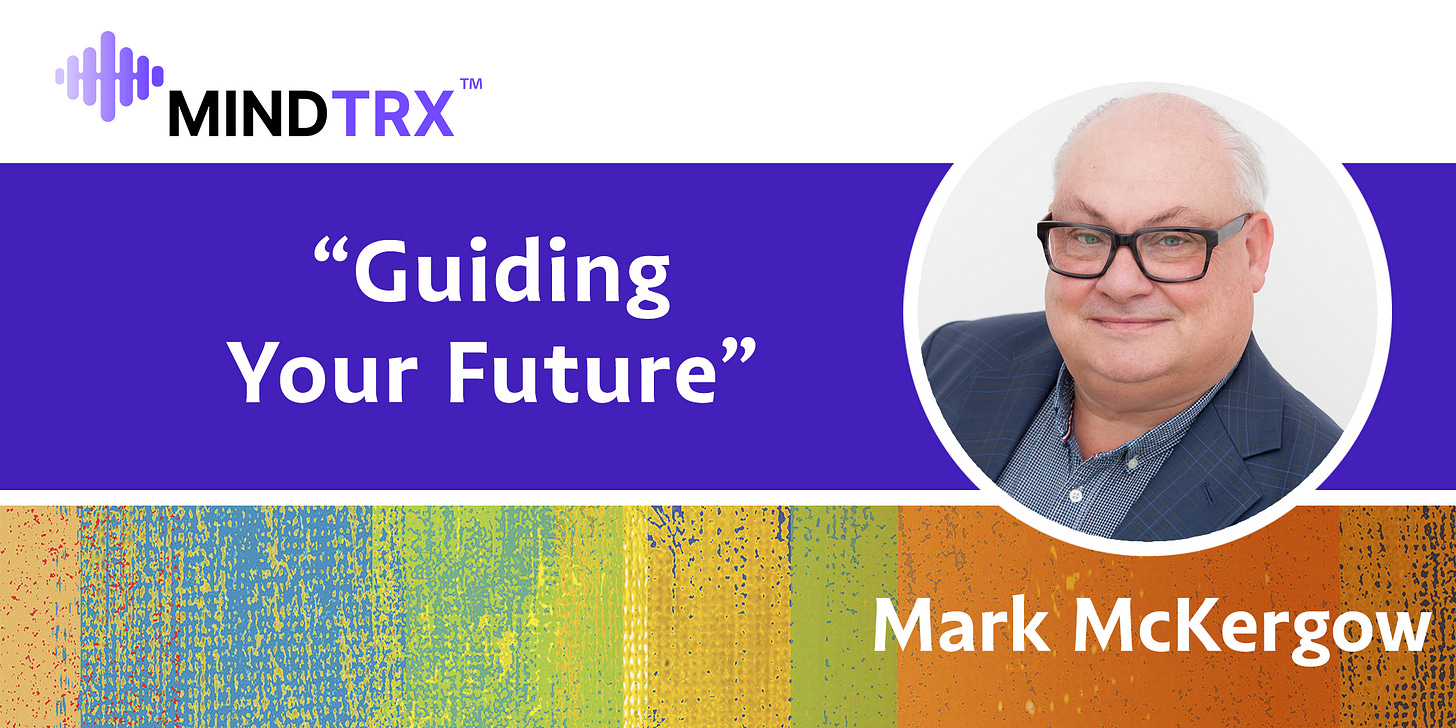45. Clinician (or manager) pessimism: why it’s so pernicious and what to do about it
Thinking that people aren’t capable has surprisingly wide-ranging effects for all concerned.
I have written here before about Julia Macintosh, co-editor of Unpsychology and researcher in the field of Mad Studies. Julia’s latest piece on Substack got me thinking about a very important and counter-intuitive topic. She wrote:
This evening I heard someone mention the term 'clinical pessimism.' It refers to the response that people often (usually) receive when they are ascribed with severe or chronic mental illness.
You are impaired, they are told, in so many words. You won't be able to achieve your goals, you won't hold down a career or find a relationship, this will drag you down and it will prevent you from leading a prosperous or fulfilling life. You have a problem, a lack. It is an albatross around your neck.
But is this a self-fulfilling prophecy? Are people really impaired by, for instance, hearing voices or venturing into psychosis? Or are they impaired by the limiting expectations of their community?
Julia goes on to write about Micha Frazer-Carroll’s 2023 book Mad World: The politics of mental health. It’s an interesting and provocative book where the author advocates for ‘mad’ people to be accepted in the same way as queer or neurodiverse folk, and I hope to be reviewing it soon. In this piece I want to focus on how pessimism – clinical or managerial – works and why it’s so troubling.
Behaviour as part of a web of interaction
Working in the family therapy tradition (from which comes Solutions Focus), we look at behaviour as part of a web of interaction. One individual’s behaviour is not simply down to them, it’s also affected by the behaviour of those around them, to which they are responding. Rather than seeking to blame the individual, this way of thinking opens up possibilities in changing behaviours in others which have positive knock-on effects. What may appear ‘mad’ or ‘deranged’ to an outsider may be the only feasible response to an impossible situation. Gregory Bateson’s work on double binds in the 1950s was one important (and also difficult and misunderstood) step into this territory.
In the 1960s and 1970s, the anti-psychiatry movement (consisting, curiously, mainly of psychiatrists) looked for ways to reconstrue mental illness into something more constructive. One leading voice was Scot RD ‘Ronnie’ Laing, who set up a centre at London’s Kingsley Hall where mental health patients could find a safe haven to express their talents and act out their traumas free from interference. It was a partial success (at best); some residents did find a spiritual and artistic freedom, but many did not. The centre closed in 1970 when two people jumped off the roof. Laing wrote books including ‘The Divided Self: An existential study of sanity and madness’. Laing was both a pioneering clinician and also a troubled man with a chaotic home life. I saw an excellent play about him at London’s Arcola Theatre in 2015 called The Divided Laing starring Adrian Cox. The subtitle (of course) was ‘The Two Ronnies’ (British readers will get it). We have a picture of Laing on our kitchen wall, part of Greg Moodie’s excellent Cool Scots series.

The role of expectations
One thing that the family therapy approach and Laing’s way of working makes clear is the role of the practitioner’s expectations. In family therapy the assumption that progress is to be found by looking at interactions rather than individuals directs the practitioner’s attention. RD Laing expected that the environment he helped create would be empowering to his clients and residents. And, in both cases, the practitioner goes into action expecting that the work will have positive results.
Solutions Focus follows this tradition of seeing people (including those suffering and/or displaying difficult behaviours) as fundamentally competent (at least in the first instance, and probably the second instance as well). We expect that they are at least capable of telling ‘better’ from ‘worse’ and are inclined to trust their judgement in this. (The alternative, where we take away that judgement from them, act on their behalf and then hope to get them to pick up their surrendered agency, is so disempowering as to be intolerable.)
Why is pessimism about others so pernicious?
Pessimism is a serious problem, as Julia Macintosh suggests, because it can so easily become a self-fulfilling prophesy. You think that someone will fail, you don’t support in quite the same way, they start to get behind or struggle, and your initial thought turns out to be correct. It’s not just that the other person ends up failing, it’s that you end up being right! There, you see, they weren’t able to succeed as I thought and I was right. One up for me, I think.
Really? Do I get a tick in the box because someone else has failed? Someone I was supposed to be helping? Someone who was entitled to look to me for support? That doesn’t sound like much of a success, does it? Where are the ethics in helping someone to fail?
It’s so easy to fall into this trap. The clinician who, trying to empathise with their client’s struggle in the immediate past, ends up having little expectation that progress is possible. The manager who, thinking they have high standards, views a team member as not up to those standards and better off elsewhere (which process can be triggered by them failing). Negative expectations are such a dreadful starting point. This is not to say, however, that the client is not facing a challenge, or the team member should be encouraged to raise their game, it’s that the negative expectations colour everything else.
So what is the alternative? Positive expectations, of course.
Positive expectations and hope – a deliberate stance, not banal optimism
Working in a Solution Focused way, we take a stance of positive expectations in our clients and customers. This is not a fluffy, look-on-the-bright-side position where everything happens for the best, it’s a deliberate position which we take. Why? Because it seems to make an important difference. It has been explored by our colleagues at BRIEF in this blog post from 2017, still well worth a read.
Some of the original research about positive expectations goes back some half a century to the work of Robert Rosenthal. Rosenthal’s best-known work was on the ‘Pygmalion Effect’ in classrooms. A group of school students were given an IQ test, after which their teachers were told that 20% of the students (randomly selected) were about to undergo a sudden IQ boost which they should be alert to. At the end of the study, the IQ test was repeated and, though all had gained, the ‘intellectual bloomers’ had increased by more (particularly in first and second grades). The broad result, that expecting progress helps it to happen (in human interactional situations – this won’t help you win at the horse races), has been accepted for decades. It has been criticised as being difficult to replicate the experiment, possibly because it’s such an artificial setting. However, in all my work teaching thousands of organisational trainers, it’s always proved a good basis for me and as something to encourage in others.
Philosopher Terry Eagleton’s 2015 book Hope Without Optimism gives an interesting take on this topic. Where many people conflate hope with optimism, Eagleton explores the concept of hope afresh, taking in millennia of history. In her review of the book in the Journal Of Solution Focused Practices, Louise Bower-Hatchard says:
An understanding of what hope is explains to some extent why using the language of hope rather than desire gets such useful responses from clients. When we invite our clients to articulate their best hopes, rather than asking about their wants, they are more likely to come up with an answer that is feasible to achieve.
Louise pulls out two quotes from Eagleton to exemplify this point:
“Precisely because it anticipates rather than simply desires, hope must intend the possible, or at least what those in the grip of it regard as possible, which is not necessarily true of desire. (P48)”
“For there to be genuine hope, the future must be anchored in the present. It cannot simply irrupt into it from some metaphysical outer space. At the same time, the yeast-like powers at work in the present do so in a way that finally surpasses its limits, pointing to a condition beyond our current imaginings” (p. 38).
This is NOT blind optimism. There is no way I can start a project to land myself on the moon in three months. But in SF working, our future hopes and aspirations are more usually developed in small details, in terms of that difference they’ll make, and in terms of small signs of progress today and tomorrow. It’s more like an inner certainty that progress (at least) is possible, and that the client/team member/ ‘difficult’ person will be at the heart of it.
Conclusions
This stance is such a key part of SF working that it’s hard to understate it. At the same time, making it natural in a way which affects those with whom you are working takes time, practice and (sometimes) a bit of chutzpah. Stepping into contact with people in really tough situations needs a balance of acknowledgement (of the tough stuff) and focus on tiny signs of progress (when the moments are right). This balance is a key skill for a humane and effective leader, manager or practitioners.
Dates and mates
Adam Froerer and Cecil Walker, two SF colleagues, are exploring the importance of hope in clinical work on their podcast The Best Hopes With Two Clinicians. Very well worth listening! Free wherever you get your podcasts, as they say.
Join our hosts Dr. Adam Froerer and Cecil Walker, two therapists with a mission to explore the concept of hope and how it can help people heal their mental health. Through engaging conversations and real-life examples, you’ll discover how you can cultivate hope in your own life. Whether you're a mental health professional or someone seeking to improve your own mental health, this podcast will help you see how valuable hope is as a resource!
I was the guest on Paul Scheele’s MINDTRX podcast recently, speaking about ‘Guiding Your Future’ with Solutions Focus. The podcast is part of a powerful app which collects wisdom from many sources to help you improve your life. Check it out here - there’s a free trial available.









